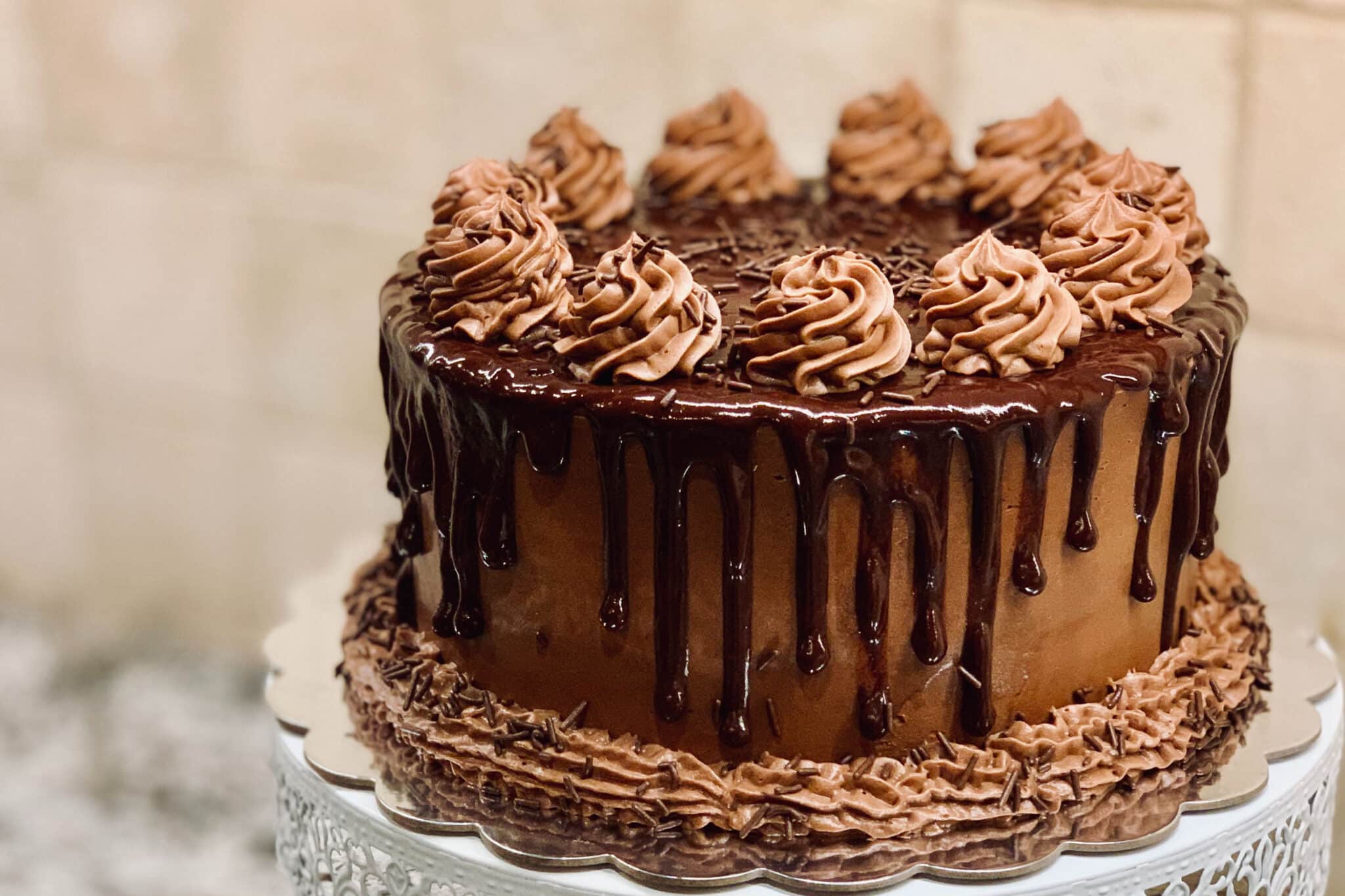
My husband and I have been watching The Great British Bake Off on Sunday evenings. I’m not sure which season we’re on, but it’s definitely not the current one.
That’s part of the beauty of the show, though: It really doesn’t matter. Time kind of stops, and life is self-contained within that steamy, fragrant tent, where 12 amateurs bake their hearts out for as many weeks as they can last, before they are gently eliminated from the competition one by one.
The show is fascinating because it’s so unlike American cooking competition shows, which tend to be so, well, competitive.
I know that British people are just as likely as people anywhere else in the world to be petty, mean, vindictive, and cutthroat; but while they’re on the show, everything is slanted in another direction, and even as the pressure mounts — and the pressure can be surprisingly intense, for a show that centres around cookies and cakes! — they’re all encouraged to put the best of humanity on display.
The show is, in many ways, about human relationships, and that (along with some clever editing, a lovely setting and some gorgeous camera work) is what keeps us coming back every week.
Here is what the show teaches you, if you’re open to it:
It’s rarely misplaced to be gentle and encouraging with each other
Don’t just look, but listen. One of the bakers had a habit of judging whether or not his baked goods were done by not only looking at and touching them, but listening to them.
He would pull his cake out of the oven and hold it up to his ear to listen to the sounds it made, and only then decide if it was done or not.
And this is true of human relationships, as well. There are the most commonplace, surface cues to be learned about other people, but it’s best to be ready to receive more subtle hints about what’s really going on inside each other. Sometimes just being quiet and listening to the small sounds that escape can be very telling.
It’s rarely misplaced to be gentle and encouraging with each other. Some contestants came across as more sincere than others, but it is evidently at least expected, on this show, that they will try to hearten and motivate each other, and even to help each other out a bit, even as the competition got more fierce week to week.
The older I get, the more I realise how desperately we all need gentleness and encouragement. Even people who ought to know how good they are really need to hear how good they are, and how important it is not to give up. It really is a beautiful and holy thing to pause in your own labours and say something kind to someone else who is struggling.
But there comes a point when you just have to tell it like it is. Not nastily, but clearly and accurately. The judges aren’t cruel or needlessly abrasive, as they often are on American shows; but they certainly know their stuff, and they don’t mince words.
Sometimes it can be crushing for a baker to hear that what they’ve made simply doesn’t taste good, or that it’s raw or burnt or just made wrong; but sometimes it’s just true, and has to be said.
You can see that the judges don’t relish hurting them, but they also don’t shy away from doing their job of naming the truth.
You can see that the judges don’t relish hurting them, but they also don’t shy away from doing their job of naming the truth. There comes a point in every person’s life when they are called upon to simply name the truth.
The contestants get plenty of chances to redeem themselves. The show is set up so that each contestant has three challenges to tackle per episode: a signature bake, a technical challenge, and a show-stopper, and once they’ve completed all three, one contestant is named star baker, and one is sent home.
It’s a little nebulous how the actual judging is done, but it’s clear that the judges take into account all three offerings they come up with; so everyone can have a bad start and still pull themselves together and redeem themselves before it’s too late.
Most worthwhile things in life are like this, or ought to be. There are very few things that we really must get perfectly right the first time, or that we have to get right every single time. But we also ought to be learning all the time from our mistakes and failures, because time does run out eventually.
They are amateurs, and that literally means they do it out of love for baking. They’re in it because it’s something they want to do, and the goal in baking is not to get ahead or get rich (although that might result!).
It’s fascinating to watch these folks willingly subject themselves to such a grueling process where they sweat and cry and agonise over their challenges, and to know that, yes, sometimes this is what it looks like when you love.
But they also sometimes remind themselves, in so many words, that baking is something they enjoy, and that they can return to doing it for the sheer pleasure they find in the process. Maybe they edited it out, but I’ve never seen a contestant say it wasn’t worth the pain. Oh, love. Oh, baking.
